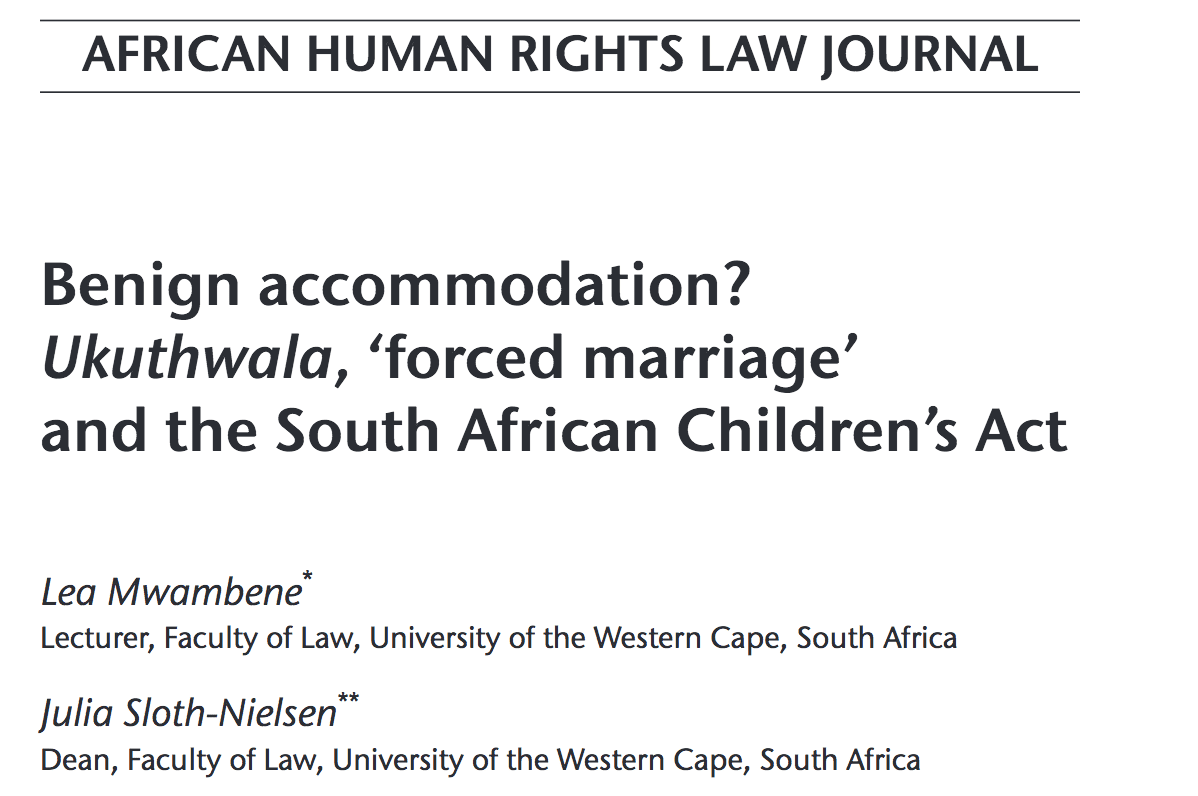
Benign accommodation? Ukuthwala, ‘forced marriage’ and the South African Children’s Act
In this article, the authors evaluate the implications of the Children’s Act 38 of 2005 for ukuthwala. Ukuthwala is a practice whereby, as a preliminary procedure to a customary marriage, a young man forcibly takes a girl to his home. In recent times, the practice has taken on other dimensions, including very young girls being married to older men and charges of abduction being laid. Questions arise relating to the impact of constitutional principles upon this customary law and practice. It is suggested that, instead of adopting an a priori prohibitionist stance towards customs that seem to violate human rights norms, benign accommodation that promotes the positive aspects of culture should be sought. This approach leads to a conclusion that South African law should recognize those forms of ukuthwala where the requirement of the consent of the ‘bride’ is met.
